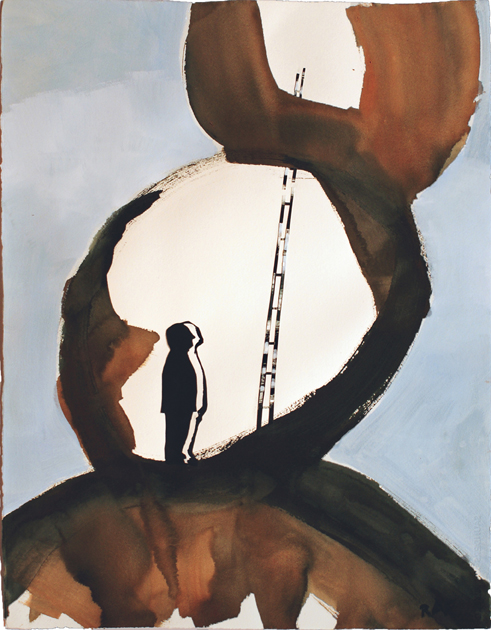A Beat of Goodbye: An Autoethnographic Account of My Last Days with Grandma
DOI:
https://doi.org/10.18432/ari29379Anahtar Kelimeler:
autoethnography- writing as method- aging and the female body- reflexive narrative- self and identityÖzet
In this paper, I use field notes, journal entries, and memory recall to write an autoethnographic account of my experiences of the last days of my grandma’s life. I use writing as method in the form of an introspective narrative, layering artistic storytelling and academic references. My original research goal was to better understand the experience of loving and caring for a very old family member by showing the inside of how I experienced my grandma’s aging and final days, including her move to a retirement home, and her death a short time later. By sharing narratively my lived experiences of my grandma’s last days, I also hoped to disrupt some of the socially accepted interpretations surrounding physical bodies and aging, especially for women. Although my initial goal was to understand how these types of experiences transform us, in the process of telling this story I found that what I also gained was a deeper understanding of who my grandma was, and ultimately, who I am.Referanslar
Bochner, Arthur P and Carolyn Ellis. Evocative Autoethnography. New York: Routledge, 2016.
Bochner, Arthur P. "Bird on the Wire: Freeing the Father Within Me." Qualitative Inquiry (2012): 168-173.
—. "It's About Time: Narrative and the Divided Self." Qualitative Inquiry (1997): 418-438.
Chonody, Jill M and Barbra Teaterb. "Why do I dread looking old?: A test of social identity theory, terror management theory, and the double standard of aging." Journal of Women & Aging (2016): 112-126.
Clarke, Laura Hurd and Erica V Bennett. "Gender, Aging and Appearance." Routledge Handbook of Cultural Gerontology. Ed. Julia Twigg and Wendy Martin. New York: Routledge, 2015. 133-140.
Clarke, Laura Hurd. Facing Age: Women Growing Older in Anti-Aging Culture. Maryland: Rowman & Littlefield Publishers, Inc. , 2011.
Ellis, Carolyn. "Maternal Connections." Composing Ethnography: Alternate Forms of Qualitative Writing. Ed. Carolyn Ellis and Arthur P Bochner. Walnut Creek: AltaMira Press, 1996. 240-243.
—. "Telling Secrets, Revealing Lives: Relational Ethics in Research with Intimate Others." Qualitative Inquiry (2007): 3-29.
—. The Ethnographic I: A Methodological Novel about Autoethnography. Walnut Creek: AltaMira Press, 2004.
—. "There Are Survivors: Telling a Story of Sudden Death." The Sociological Quarterly (1993): 711-730.
Ellis, Carolyn, Tony E. Adams and Arthur P. Bochner. "Autoethnography: An Overview." Forum: Qualitative Social Research (2011): 1-18.
Etherington, Kim. "Autoethnography." Becoming a Reflexive Researcher: Using Our Selves in Research. London: Jessica Kingsley Publishers, 2004. 137-138.
Gouliquer, Lynne, Carmen Poulin and Maryani Lesmana. "Mobility Boundaries Between Home, Community, and Beyond: Experiences of Exceptionally Old Adults Living in Eastern Canada." Qualitative Sociology Review (2015): 124-150.
Hunt, Celia and Fiona Sampson. Writing: Self and Reflexivity. New York: Palgrave MacMillan, 2006.
Kenyon, Gary M and William L Randall. "Introduction: Narrative Gerontology." Journal of Aging Studies (1999): 1-5.
Langer, Ellen J and Judith Rodin. "Long-term effects of a control-relevant intervention with the institutionalized aged." Journal of Personality and Social Psychology (1977): 897-902.
—. "The effects of choice and enhanced personal responsibility for the aged." Journal of Personality and Social Psychology (1976): 191-198.
Phoenix, Cassandra, Brett Smith and Andrew C Sparkes. "Narrative analysis in aging studies: A typology for consideration." Journal of Aging Studies (2010): 1-11.
Price, Bob. "The older woman’s body image." Nursing Older People (2009): 31-36.
Rambo Ronai, Carol. "My Mother is Mentally Retarded." Composing Ethnography: Alternative Forms of Qualitative Writing. Ed. Carolyn Ellis and Arthur P Bochner. Walnut Creek: Altamira Press, 1996. 109-131.
Rambo Ronai, Carol. "The Reflexive Self Through Narrative: A Night in the Life of an Erotic Dancer/Researcher." Investigating Subjectivity. Ed. Carolyn Ellis and Michael G Flaherty. Newbury Park: Sage Publications, 1992. 102-124.
Richardson, Laurel. "Writing: A Method of Inquiry." Handbook of Qualitative Research. Ed. Norman K Denzin and Yvonna S Lincoln. 2nd. Thousand Oaks: Sage Publications, Inc, 2000. 923-948.
Slevin, Kathleen F. "If I had lots of money... I'd have a body makeover: Managing the Aging Body." Social Forces (2010): 1003–1020.
Young, Margaret L. "Death Comes." Qualitative Inquiry (2008): 990-998.
İndir
Yayınlanmış
Nasıl Atıf Yapılır
Sayı
Bölüm
Lisans
Telif Hakkı (c) 2018 Art/Research International: A Transdisciplinary Journal

Bu çalışma Creative Commons Attribution-NonCommercial-NoDerivatives 4.0 International License ile lisanslanmıştır.
Authors who publish with Art/Research International agree to the following terms:
a. Authors retain copyright and grant the journal right of first publication and the right to sublicense the Contribution, in the form in which it is published by the journal, to others under the terms and conditions of the of the Creative Commons Attribution-NonCommercial-NoDerivs (CC BY-NC-ND) that allows others to download the work and share the work with others with an acknowledgement of the work's authorship and initial publication in this journal, but they cannot change the work in any way or use any part of the work commercially.
b. Authors are able to enter into separate, additional contractual arrangements for the non-exclusive public distribution and display of the journal's published version of the work (e.g., post it to an institutional repository or publish it in a book), with an acknowledgement of its initial publication in this journal.
c. Authors are permitted and encouraged to post their work online (e.g., in institutional repositories or on their website) prior to and during the submission process, as it can lead to productive exchanges, as well as earlier and greater citation of published work (See The Effect of Open Access).
d. Authors wishing to include items (such as images or other media, or any creative works of others whether previously published or not) must contact the original copyright holder to obtain explicit permission to publish these items in Art/Research International. Writing permission should include: the title(s) of any copyrighted work, original place of publication if applicable, and an acknowledgement of having read Art/Research International's copyright notice. Authors are responsible for obtaining this permission and keeping it in their own records for later verification.



